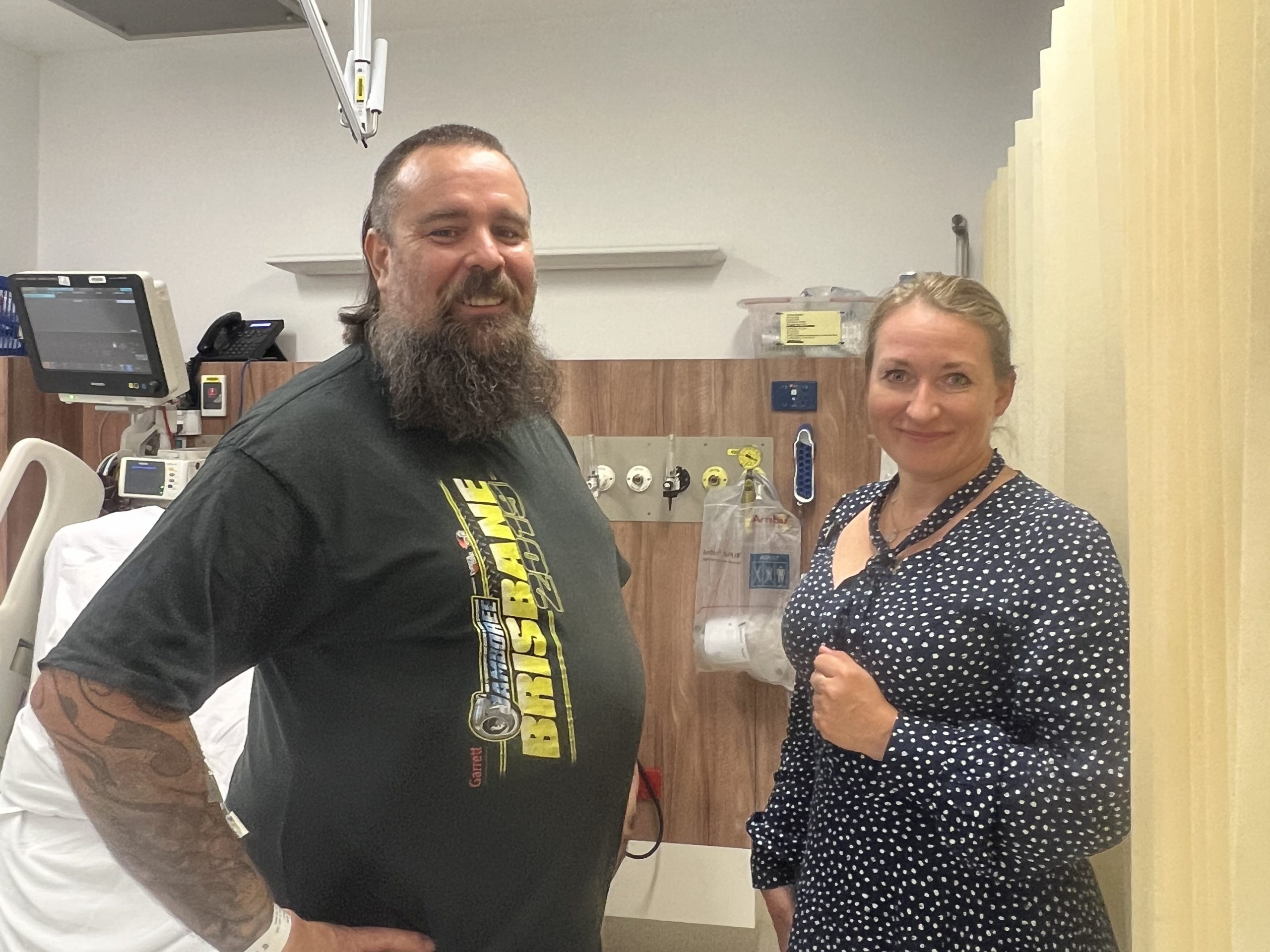Monday, February 6 was just a normal day at work for 42-year-old Dylan Holmes.
But late in the afternoon, while talking to a work mate, he collapsed.
Mr Holmes was suffering a cardiac arrest and was fortunate to be in a workplace which had an Automated External Defibrillator (AED) installed.
“One minute I was talking to a mate and the next minute I was on the ground,” he said.
“Lucky the boss started compressions and the defib did the rest, so I’m very lucky.”
Mr Holmes acknowledges that his survival on that day was the result of the combined efforts of his workmates at Jennmar Australia, the Queensland Ambulance team who were soon on site and the Mackay Base Hospital’s emergency, cardiac and intensive care teams who provided surgery and follow-up care.
Mackay Base Hospital cardiologist Dr Dominika Budzbon explained that Mr Holmes was also the first patient in Mackay to receive an implant of a subcutaneous defibrillator (ICD).
“This is a clever and highly programmable processor which recognises dangerous heart rhythms and works out what to do with it,” Dr Budzbon said.
“It is suitable for patients who only need a device to shock the heart, and do not need the support of a pacemaker as well.
“He is young and he will have this for many years, and we can minimise risk by using this device, rather than the traditional one.”
Mr Holmes was an advocate for workplace debrillators even before his close call but is even more so now.
“I believe all workplaces should have them; they’re a lifesaver,” he said.
“I can’t believe what’s happened. I’m lucky that I’m still around and I’m lucky that I had the people to help me when it was needed,” Dylan said.
“From the blokes at Jennmar to ambulance workers that rocked up …. all the doctors and nurses – everyone’s been awesome.”
Video: Dylan Holmes tells his story, with explanation by Dr Dominika Budzbon.



